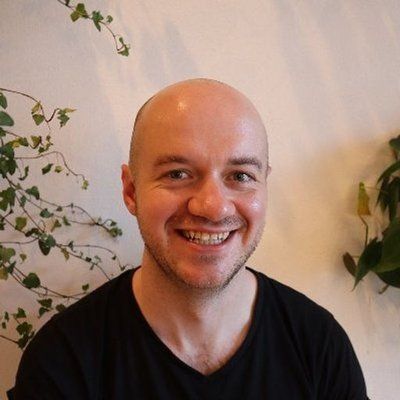Advice for first time founders in 2022

Here's my advice for first time founders who are starting out. I've been a full-time online entrepreneur for over 3 years now. I've had lots of ups and downs over that time.
Yesterday, I was feeling in a writing mood so I wrote a thread:
I've been a full-time indie hacker for over 3 years now
— Pete - No CS Degree + High Signal + ghost tweets (@petecodes) October 7, 2022
My advice to founders:
So I thought I'd write it out here as well and expand on some points.
Don't just quit your job without revenue
Please don't burn through your savings by quitting your job without any revenue coming in. I've seen this a lot. People will post on IndieHackers about how they quit their job to make their own business and lost all their savings.
Watching your savings stagnate or fall is really depressing. Much of the time this could be avoided by building your startup in your evenings and weekends. (I realise this isn't possible for everyone). You really need to see consistent revenue before you quit your job.

Many successful founders I know like Ben Tossell from MakerPad and Scott from Scott's Cheap Flights only quit their day jobs when they were already making serious revenue.
I did actually quit my job and go straight into entrepreneurship but I had
a) a cheap place to live
b) a deadline where I'd go back to a job if I couldn't make $1,000/m in 6 months
(I actually made over $1,000 in the 3rd month)
In hindsight though I'd have been in a better financial position now if I had done any sort of part-time job for the first two years I worked on my businesses.
Do B2B (they have money)
• charge a high price to a small number of customers (less customer support)
For instance, I do ghost writing on Twitter/X and LinkedIn for founders and companies where I help them save time, find more followers, improve their tweets and get more business.
Businesses or tech founders have much more money to spend than the average consumer. Businesses have budgets that need to be spent and successful founders have money to spend. In contrast, a lot of consumers balk at having to pay for anything online as they are used to so many products being free. Or they are facing a cost of living crisis and are cutting back on spending.
I'd much prefer to have a handful of clients than have hundreds of thousands of customers paying a few bucks a month. There is far less customer support and admin with a small number of client. Also, you don't have to reach that many people to make a living if you charge a relatively high amount.
• get recurring revenue (you don't need to chase for new customers every month)
When I was starting out, I would get really excited by selling sponsorship slots for No CS Degree. This was a good achievement at the time but after a while I realised the pitfalls of one-time customers. You obviously need to find more and more customers every month if people are only paying once. It's far better to make a product that people will pay every month for like ghost writing on Twitter.
Please stop making $5/m apps
You need 2,000 customers to get to $10k/m. If your website converts at 1% you need to get 200,000 visitors to your site. So charging $5/m just doesn't make sense.
I can only think of one person who has got to $10k/m with this pricing model and they had a really big personal following. Most founders who are successful are not charging $5/m.
If you're in a market where you can only charge $5-10 per month, I suggest choosing a new market. As many founders like Justin Jackson from Transistor have said, the market you're in will determine how successful you are.
Please pursue things people are willing to pay money for!
If you don't have early traction you won't make money. The exception is if you're a 1 in a million company like Airbnb but that's very unlikely. Airbnb is often cited as a reason to keep on going no matter what as they had to struggle for years to make the company work. (The Airbnb Story is an excellent read)
But ask yourself - how likely is it that you're the exception to the rule?
Most companies without early traction are doomed to fail. Trust me, I've worked on products for years before realising they wouldn't work.
You don't need to be passionate about your idea
Millions of people make a good living from work they aren't passionate about. Being a broke starving artist is only cool in movies. It sucks not having money, trust me!
Jack Cowin is a billionaire Australian entrepreneur who created the Hungry Jacks fast food chain in 1969 after seeing how successful the growing fast. Cowin had a famous quote which I love:
"I've never had an original idea in my life."
By all means, make a passion project in your spare time. But if you want to make money, passion shouldn't be your priority. You need something customers will pay money for. This theme is explored in a book I love, So Good They Can't Ignore You by Cal Newport.
Having more money will improve your life a lot
You always want to have options. Don't fall for the lie popular in Western society that money is a bad thing. Being poor is inherently stressful and stress lowers your life expectancy.
Money means you can live in a safer neighbourhood, join your friends on a trip, help out your friends and family financially and help you retire earlier and in more comfort.

In March on a whim I went to Lisbon for a few days to see friends from the Indie London community. I had an awesome time hanging out with fellow founders and obviously, I couldn't have a week's holiday without having disposable income.
Please ignore people who are pessimistic or cynical
If anyone doesn't support your vision, just shut them out. You wouldn't try to quit smoking while hanging out with smokers. Some people won't want you to succeed, unfortunately. Lots of narcissists see another person's success as their failure so will try to discourage you.
Also, if you're in certain places like Europe, lots of people who are happy to be "average" don't like people who are more ambitious. Search for "tall poppy syndrome" to see what I mean.
Hang out in communities for founders
Entrepreneurship is very hard going so don't try to do it alone. Being in a community, whether it's private or just posting on Twitter, means you can get advice from more experienced founders, let off steam and share your wins. A lot of your friends and family probably won't be excited about you getting your first MRR.
They say you're the average of the six people you spend the most time with. So if you hang out with other founders, you can soak up lots of their enthusiasm, spirit and advice.
It will also make your journey way more fun if you are spending time with other founders. I run a community for entrepreneurs who are making revenue. We have a Telegram chat group and talk every Thursday on Zoom. It's like having after-work drinks in a bar, but it's online. Also, once a month we have a guest founder who does an AMA and High Signal members can ask them questions directly.
Don't listen to endless podcasts or read endless blog posts.
You gotta just ship! Yes, blog posts like this and podcasts are good but make sure they aren't taking up more than 10% of your time. Bingeing podcast episodes about entrepreneurship might feel like work but you need to actually make something. So by all means, listen to shows and read newsletters but that should be a small amount of your week.
Don't compare yourself to other entrepreneurs
I am a huge fan of the book "The Courage to be Disliked". One of its themes is that if you compare yourself to others they will become your competition and then your enemies. If you compare yourself to your entrepreneur friends, you'll want them to fail so you look or feel better.
Obviously, that's an utterly joyless way to live! I have many friends who make over a million dollars a year and I am happy when they succeed! Their win is not my loss. Everyone has different drives, circumstances and ambitions so don't compare yourself to other founders.
Conclusion
I hope you found this useful!
The Twitter thread that inspired this article did really well:
I've been a full-time indie hacker for over 3 years now
— Pete - No CS Degree + High Signal + ghost tweets (@petecodes) October 7, 2022
My advice to founders:
If you want tweets that bang, I do ghost twitter writing for founders and companies.
I can save you time, boost your followers, improve your tweets and make Twitter more fun for you :)
I'm taking on new clients at the end of October.
